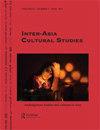Tomar naam, amar naam, Vietnam Vietnam! Folk styles and solidarity in the Bengali new wave cinema
IF 0.4
4区 社会学
Q4 ANTHROPOLOGY
引用次数: 0
Abstract
ABSTRACT The Bengali new wave cinema of the 1960s and 1970s addressed historically important world events through an aesthetic inspired by Marxism and long-standing anti-colonial traditions dating to the middle nineteenth century. At the same time, an aesthetic derived from folk and artistic traditions was embraced as a cultural style in the middle twentieth century by local Marxist progressive theatre and writers’ associations. In 1968, the Bengali film director Ritwik Ghatak published a short speculation for the Bengal Youth Festival explaining the scenario for “A Film I want to make about Vietnam.” The film was not made, but the imagined detail is very much in the style of the Bengali new wave. Also important—and made, so we can see it—is Satyajit Ray’s short film “on” Vietnam, Two: A Film Fable (1964). The two films express, in different ways, the enthusiasm among Bengali intellectuals for Vietnam at the time when revolutionary youth solidarity with the anti-imperialist struggle was strong. What were Ghatak and Ray thinking with these films “on” Vietnam? Can they tell us anything of the times, the engaged role of film, the director as intellectual agitator, the politics of solidarity from afar? By evaluating the reception of historically focussed film from the perspective of the Bengali New Wave, I show how that cinema’s fascination with Vietnam evokes both much older folk traditions, yet now leads to a more worrying contemporary coda with the adaptation in 2019 of the old slogan by the Hindutva right to include Jai Ram.越南,越南,越南!孟加拉新浪潮电影中的民间风格与团结
摘要:20世纪60年代和70年代的孟加拉新浪潮电影通过受马克思主义和19世纪中期长期反殖民传统启发的美学,讲述了具有历史意义的世界大事。与此同时,源自民间和艺术传统的美学在20世纪中期被当地马克思主义进步戏剧和作家协会视为一种文化风格。1968年,孟加拉电影导演里特维克·加塔克发表了一篇关于孟加拉青年节的简短推测,解释了《我想拍一部关于越南的电影》的场景。这部电影没有拍摄,但想象中的细节非常符合孟加拉新浪潮的风格。同样重要的是,萨蒂亚吉特·雷的短片《越南,第二:电影寓言》(1964年)。这两部电影以不同的方式表达了孟加拉知识分子对越南的热情,当时革命青年强烈支持反帝斗争。加塔克和雷对这些“关于”越南的电影有什么想法?他们能告诉我们什么时代的东西吗?电影的敬业角色,导演作为知识分子的煽动者,远方的团结政治?通过从孟加拉新浪潮的角度评估以历史为中心的电影的受欢迎程度,我展示了这家电影对越南的迷恋是如何唤起古老的民间传统的,但现在却导致了一个更令人担忧的当代结尾,2019年印度电视台改编了旧口号,将Jai Ram包括在内。
本文章由计算机程序翻译,如有差异,请以英文原文为准。
求助全文
约1分钟内获得全文
求助全文
来源期刊

Inter-Asia Cultural Studies
Multiple-
CiteScore
0.90
自引率
20.00%
发文量
22
期刊介绍:
The cultural question is among the most important yet difficult subjects facing inter-Asia today. Throughout the 20th century, worldwide competition over capital, colonial history, and the Cold War has jeopardized interactions among cultures. Globalization of technology, regionalization of economy and the end of the Cold War have opened up a unique opportunity for cultural exchanges to take place. In response to global cultural changes, cultural studies has emerged internationally as an energetic field of scholarship. Inter-Asia Cultural Studies gives a long overdue voice, throughout the global intellectual community, to those concerned with inter-Asia processes.
 求助内容:
求助内容: 应助结果提醒方式:
应助结果提醒方式:


